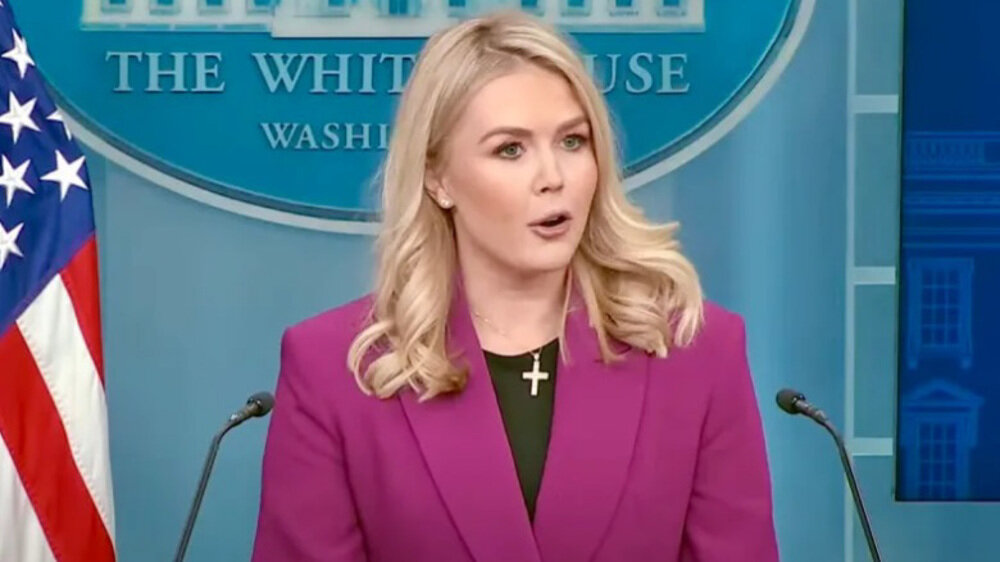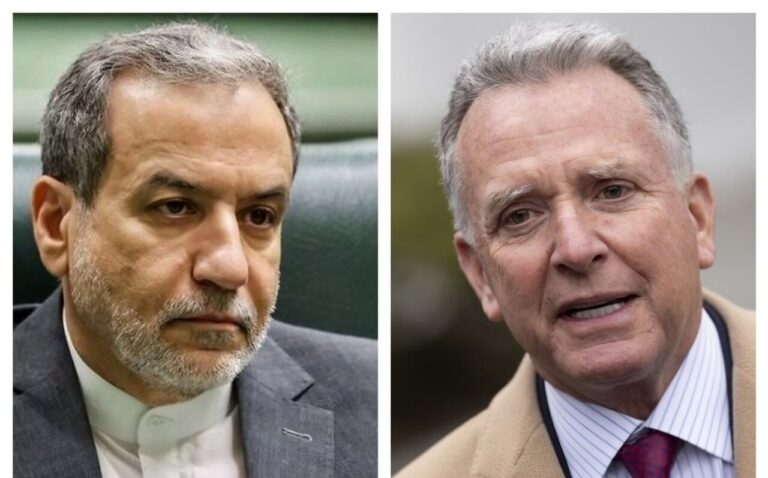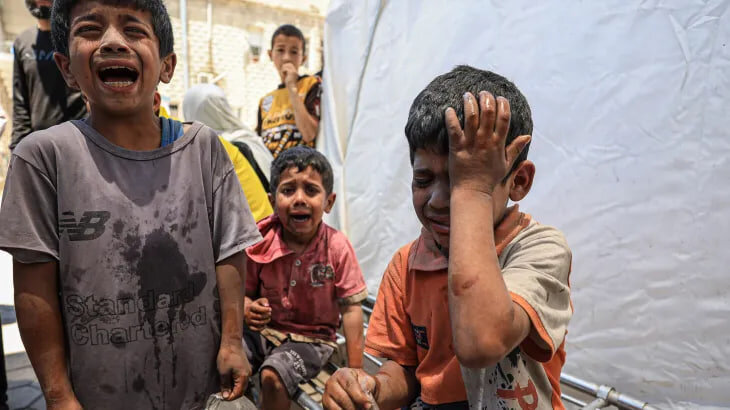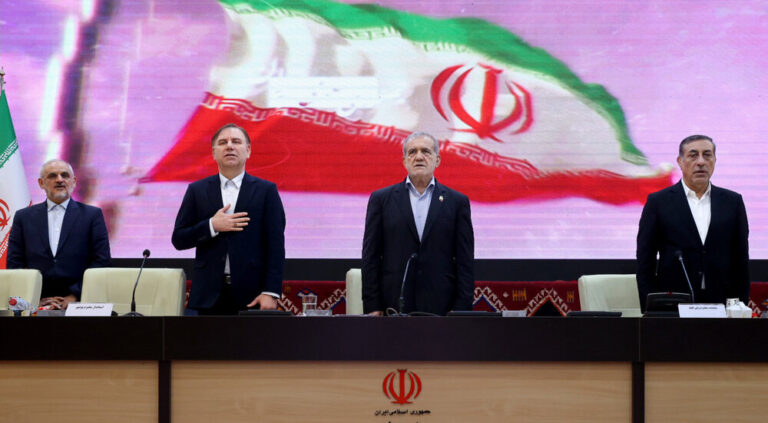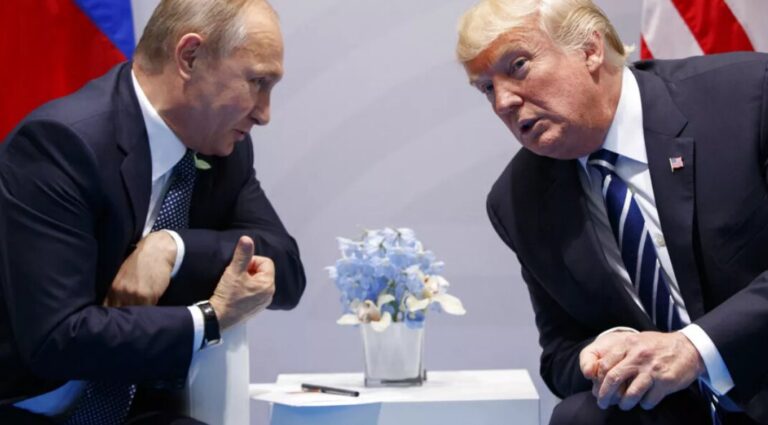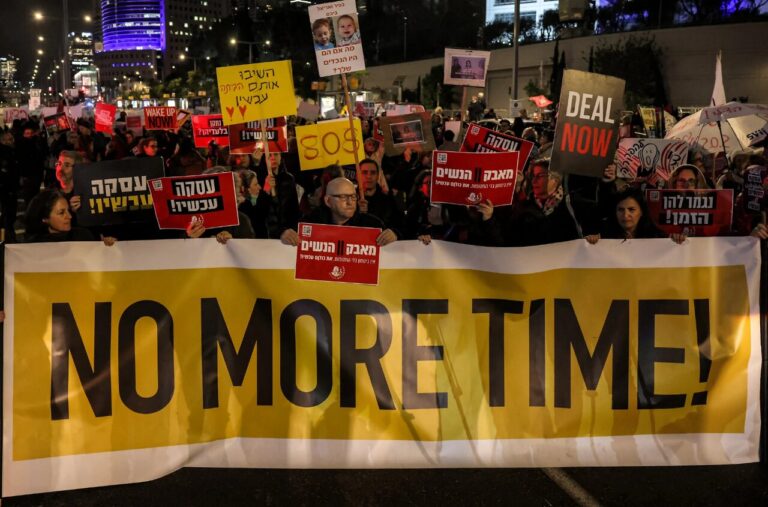White House Reiterates Engagement in Ongoing Talks with Iran
In a significant development regarding U.S.-Iran relations, White House spokesperson Karoline Leavitt confirmed that direct talks between the United States and Iran are set to commence on Saturday. This announcement follows U.S. President Donald Trump’s assertion that these discussions will take place in Oman, marking a potential turning point in diplomatic engagement.
During a press briefing on Tuesday, Leavitt emphasized, “First of all, when it comes to Saturday, I won’t get ahead of the president. He has said there will be direct talks with Iran on Saturday.” This statement reflects the administration’s commitment to exploring diplomatic channels amidst ongoing tensions.
Trump has been vocal about the upcoming meeting, stating, “We’re having direct talks with Iran, and they’ve started. It’ll go on Saturday. We have a very big meeting, and we’ll see what can happen.” This declaration was made during an Oval Office meeting with Israeli Prime Minister Benjamin Netanyahu, adding an international dimension to the discussions.
Despite the optimistic tone from the White House, Iranian officials have taken a more cautious stance. Foreign Minister Abbas Araqchi has repeatedly indicated that the negotiations will be conducted in an “indirect” format. This distinction is crucial as it highlights the complexities involved in the diplomatic dialogue.
On Tuesday evening, Araqchi stated that “Washington has agreed to hold indirect negotiations.” He further clarified the conditions under which these talks would occur, asserting that “as long as ‘maximum pressure’ and threats exist, there is no ground for fair negotiations, and we will not hold direct negotiations.” This statement underscores Iran’s insistence on a more equitable approach to negotiations.
The timeline of events leading to the current situation is notable. On March 7, President Trump revealed he had sent a letter to Iran, urging for nuclear negotiations. Iran’s response came later that month, with officials rejecting direct talks with the U.S. due to what they termed a “contradictory and hostile approach.” However, they expressed a willingness to engage in indirect negotiations, indicating a potential pathway for dialogue.
- Key Points from Recent Developments:
- Direct talks between the U.S. and Iran are scheduled for Saturday.
- President Trump confirmed the meeting will take place in Oman.
- Foreign Minister Abbas Araqchi maintains that negotiations will be indirect.
- Iran insists that “maximum pressure” must be lifted for fair negotiations to occur.
- Trump sent a letter to Iran regarding nuclear negotiations earlier in March.
- Iran has rejected direct talks, citing a hostile U.S. approach.
This ongoing situation highlights the delicate balance of diplomacy in the region. Both nations seem poised for a complex negotiation process that could have far-reaching implications not only for U.S.-Iran relations but also for global security and geopolitical stability.
As the talks approach, analysts are closely monitoring the situation. The outcomes of these discussions could redefine the future of nuclear diplomacy and shape the strategic landscape of the Middle East.
In conclusion, while the announcement of direct talks has sparked interest and optimism among some, the realities of diplomatic negotiations are often fraught with challenges. The insistence on indirect discussions from Iran’s perspective suggests that trust remains a significant barrier to achieving a comprehensive agreement.
With both sides expressing their conditions and reservations, the world will be watching closely to see how these negotiations unfold and what they may mean for the future of U.S.-Iran relations.
